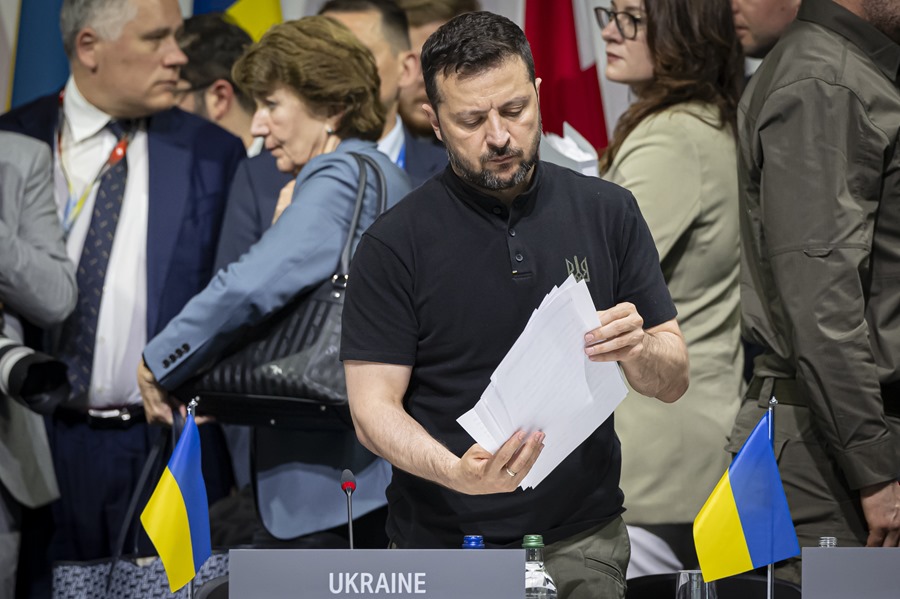Twelve countries do not sign the Ukraine summit declaration

GENEVA (EFE).- The Ukraine Peace Summit, which brought together nearly 60 world leaders and representatives of nearly eighty governments, ended this Sunday with a joint declaration calling for nuclear and maritime transit security, although twelve of the world’s leading developing countries and Russia’s partners in some forums refused to sign the document.
These include Brazil, India and South Africa – which together with Russia and China are part of a group of emerging economies known as BRICS – as well as Mexico.
Armenia, Bahrain, Indonesia, Libya, Saudi Arabia, Thailand and the United Arab Emirates also did not join the final declaration, while 84 countries signed the document, including countries from the European Union, the United States, Japan, Argentina, Chile and Ecuador.

At the end of the second leaders’ plenary session held today, Ukrainian President Volodymyr Zelenskyy thanked the delegations for their participation and for understanding that “we are all interested in the fact that nuclear plants and other nuclear facilities do not pose any threats.”
“I am grateful that the participants in this conference understood this and recognized the need to restore full security at the Zaporizhia plant occupied by Russia,” he said.
“I thank all of you for supporting us in our efforts to ensure safe navigation and preserve the free flow of food,” the Ukrainian President said.
Declaration calls for nuclear security
Political leaders attending the Peace Summit for Ukraine will adopt a declaration this Sunday that emphasizes nuclear security, defends that the Zaporizhzhia Nuclear Power Plant should operate under full Ukrainian control, while calling for security for the transit of goods through the Black Sea.
The declaration, to which EFE has access, will mark the culmination of two days of public declarations and private exchanges this Sunday between a hundred delegations from the countries, more than 60 of which are led by presidents and heads of state.
Participants agree on the purpose but not on how
The document covers topics on which it might be assumed there would be consensus, because although participants agree that the war in Ukraine must end, not everyone thinks the same way about how to get to that point.
While the Europeans feel directly threatened by this conflict and form a bloc against Russia, countries from other regions have dared to talk about both sides having to make concessions, which at the moment both Kiev and Moscow reject.

However, the declaration does not clearly state how this process will continue as a prelude to true peace talks with Russian participation, nor does it set a deadline for the next meeting.
Use of nuclear energy
On the nuclear issue, leaders maintain that any use of nuclear energy must be safe and take environmental considerations into account, and that any threat of using nuclear weapons is absolutely unacceptable.
The second major issue addressed in the declaration is that of food security, which is dependent on the uninterrupted production and supply of products, for which it is necessary to guarantee the safety of commercial navigation in the Black Sea as well as access to the ports of the Sea of Azov.
“Attacks against merchant ships in ports or on routes, as well as against civilian ports or port infrastructure, are unacceptable,” says the declaration, which should be officially adopted at the end of the summit hosted by Switzerland at the request of the government headed by Volodymyr Zelensky.
A humanitarian appeal to the prisoners
The third and final point of the declaration is humanitarian and includes a call for the release, through a full exchange operation, of all prisoners of war held by Russia and Ukraine respectively.
At the same point it added that the return of children and all Ukrainian citizens illegally detained should be allowed.
Three working groups developed during the summit with the participation of political leaders and members of delegations revolved around these three themes.
